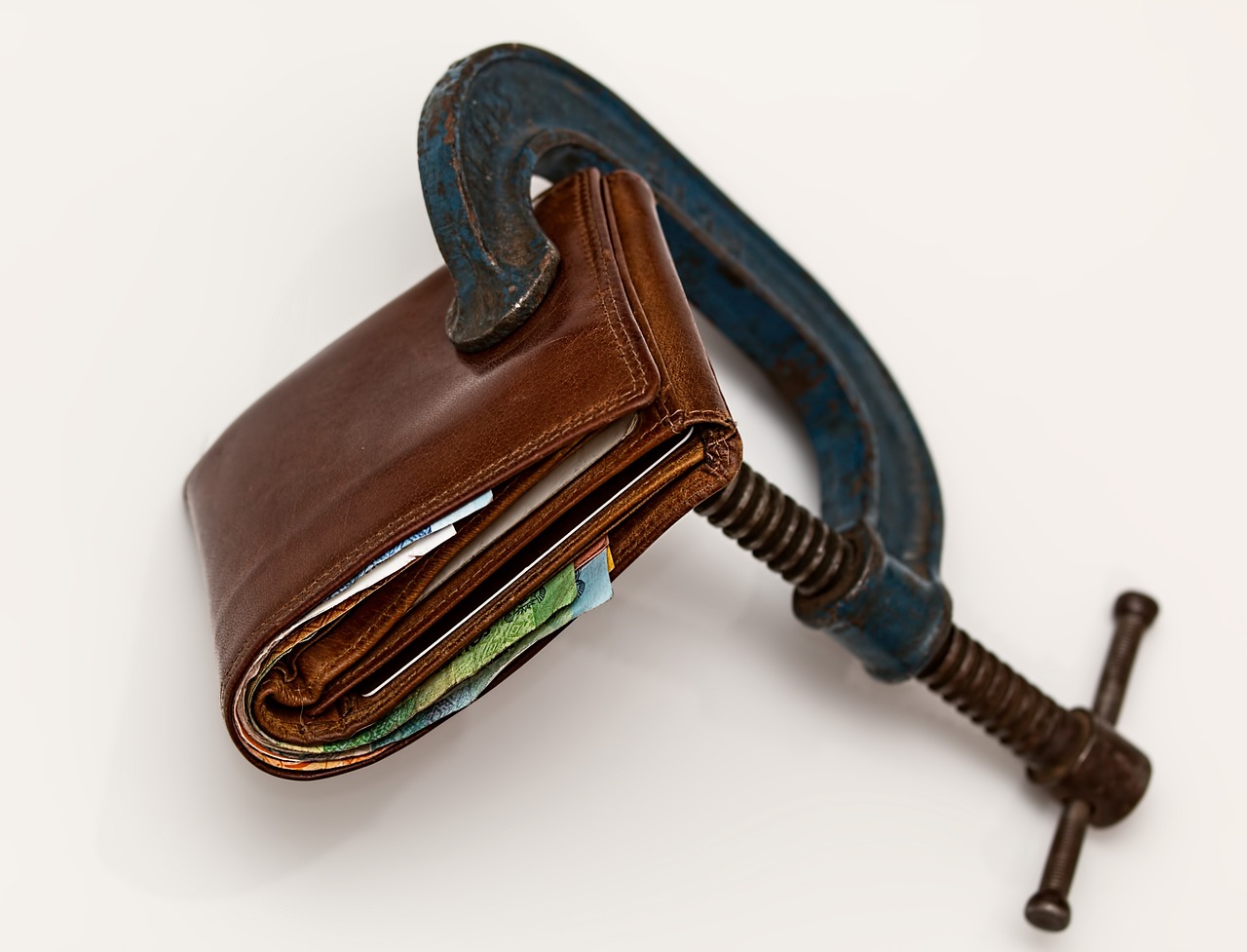
Even when the economy seems to be doing well, managing your finances may be complicated and frustrating. Even if our immediate attention may be required by daily costs, employment, and family responsibilities, it is equally crucial to set aside time to create a financial strategy for the future.
Read: How to Invest in the Share Market? Tips for Beginners 2023
A period of greatly reduced economic activity is referred to as an economic recession. There could be a downturn in the national economy, salary cuts, job losses, and misery for millions of people. However, putting in place a prudent fiscal plan can give you the financial security you need to withstand the impacts of a potential economic slump.
While stress over money and family conflicts are reasonably typical, a severe global economic crisis can make many people fear losing their house, their assets, or both. The actions below will help you discover more peace and a better financial future if you’re experiencing financial stress.
Here are Some Tips for How to Survive a Financial Crisis
1- Eliminate your debt:
Debt is frequently unavoidable, however there are alternatives to lessen the amount you owe. Your cash flow will gradually improve as you pay off your debt. If you have additional large debts in addition to your mortgage, you should prioritize paying them off first. Reduce the number of credit cards you have to start. You only require one! Attempting to cut your creditors’ interest rates is another option. You can prevent excessive interest rates and late penalties by making complete and timely payments on your invoices. Try to pay more than the minimal amount required if you can’t make full payments to avoid spending more in interest and fees.
Assemble a strategy to pay off all outstanding debts, including credit card balances, school loans, personal loans, car loans, and any other outstanding debts you have. Putting that money back in your pocket will allow you to spend it on something else. Debt from credit cards or other high-interest sources should be paid off first. Remember to pay the minimal amount due on all of your obligations in order to keep your credit in good standing while you pay off one obligation.
2- Stay updated on your monthly spending:
If you’re not attentive, your monthly costs will up fast. It’s essential to keep monitoring of your fixed costs if you want to withstand any storms and prevent unforeseen circumstances. Start by going over all of your monthly expenditures and separating your needs from your wants, such as a brand-new cellphone or a new car. Needs include things like utilities, rent, and food. When you become aware of how much money you require for the necessities, you can start cutting back on unnecessary expenses and conserving money.
3- Reduce Your Monthly Expenses:
Any costs that are unnecessary must be cut, so get to work. When you’re able to cut your regular monthly spending as much as you can when your finances are tight, you’ll have less difficulty paying your expenses. To start, look over your budget to identify any areas where you are actually incurring more expenses than is necessary. Do you, for instance, pay a fee each month for your bank account? Gain knowledge on how to change to a bank that offers free checking and how to cancel or switch to a less expensive phone plan. Perhaps you have a tendency to leave lights on in rooms you don’t use or to leave the heater or air conditioner on when you aren’t home. Your energy expenses might be reduced, helping you save money. Moreover, this is a great opportunity to shop around for lower insurance premiums and determine whether specific insurance policies, like auto insurance, can be cancelled in an emergency. You might be given an extension by some insurance providers, so become familiar with the procedure and be ready.
4- Try to find a part-time job/ increase your income:
Having a second source of income can make the difference between being able to sleep at night and worrying about money when circumstances are rough. By taking on more employment during times of plenty, you can start by raising your savings. In addition to earning extra money, a side hustle or small business acts as a safety net in case your primary employment is affected by a downturn in the economy or a potential layoff. You might find the financial security you’ve been looking for with this advice.
Finding a job, babysitter, collecting credit card and banking rewards, freelancing, or selling stuff you no longer use online or in a yard sale are all ways to earn extra cash. Even while the money you make from these endeavors may seem minor in comparison to what you make from your primary job, even small amounts may eventually add enough to pay off something significant.
5- Learn about personal finances:
Although there are experts who can aid you on your trading adventure, you should nevertheless regularly stay up with business developments yourself. One of the most beneficial investments you can start making is in your own education rather than relying on professionals to complete the task for you. You won’t necessarily become a scholar of economics, but you will comprehend the economy and how it affects your personal money better. Take a finance course online or sign up for one at the junior college in your area. There are many excellent books on managing personal finances that you can look at as well.
6- Determine the available resources:
Several community initiatives are frequently offered to assist during a financial crisis. These can include cash reserves for unforeseen expenses like rent,food, and utility payments.Figure out what you’re likely to necessitate and check whether there is a place, group, or person that can give it to you, even if it’s just temporarily. Understanding the resources in your area can make all the distinction between providing finance and significant monetary devastation. Maintain a latest update of these sources for future use.
7- Avoid taking someone else’s debt:
When the economy sways, a lot of people experience hardship. Avoid letting family or friends pressure you into incurring unforeseen debt or make any financial decisions out of fear. You should also make an effort to avoid co-signing for someone else’s debt in order to avoid accruing more debt. Even though it’s in our nature to want to support people through trying times, we should steer clear of this course if doing so will put undue strain on us. Before considering how you may assist others in doing the same, you should concentrate more on improving your personal financial objectives, budget, and system for tracking expenses and saves.
8- Check out your insurance policy:
If you have too much insurance or if you can get the same coverage from another carrier for less money, these are obvious adjustments you may make to minimize your monthly expenses. However, having adequate insurance protection could prevent one catastrophe from piling on top of another. Additionally, it’s crucial to confirm that you have adequate coverage—not just the bare minimum. A disability insurance policy is a need if you suffer a serious sickness or accident that prevents you from working, and an umbrella policy may fill in the gaps left by your other plans.
Each one of us experience financial crises differently, and as a result, various people will react to a crisis in different ways. However, following these steps will put you on the right track to handle your particular financial situation and position yourself for success going forward.






